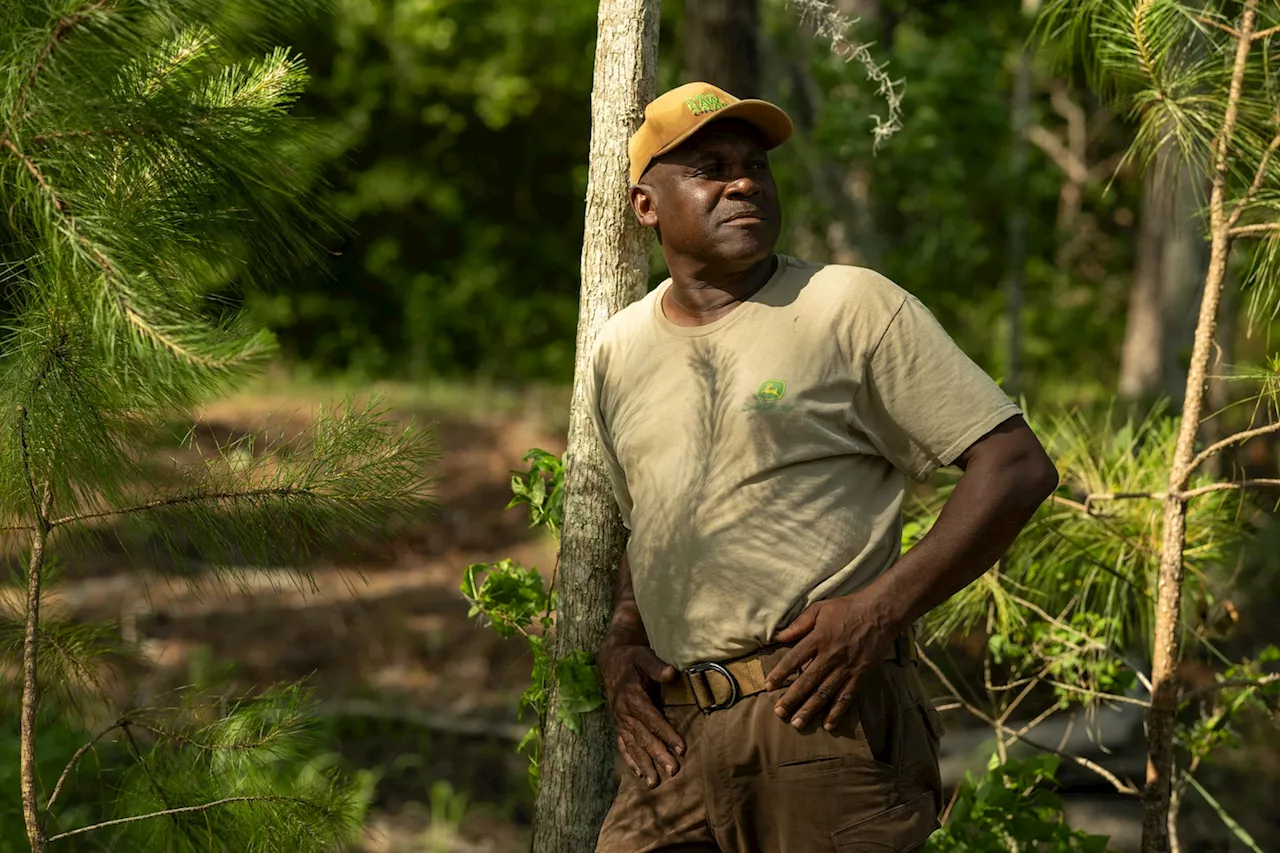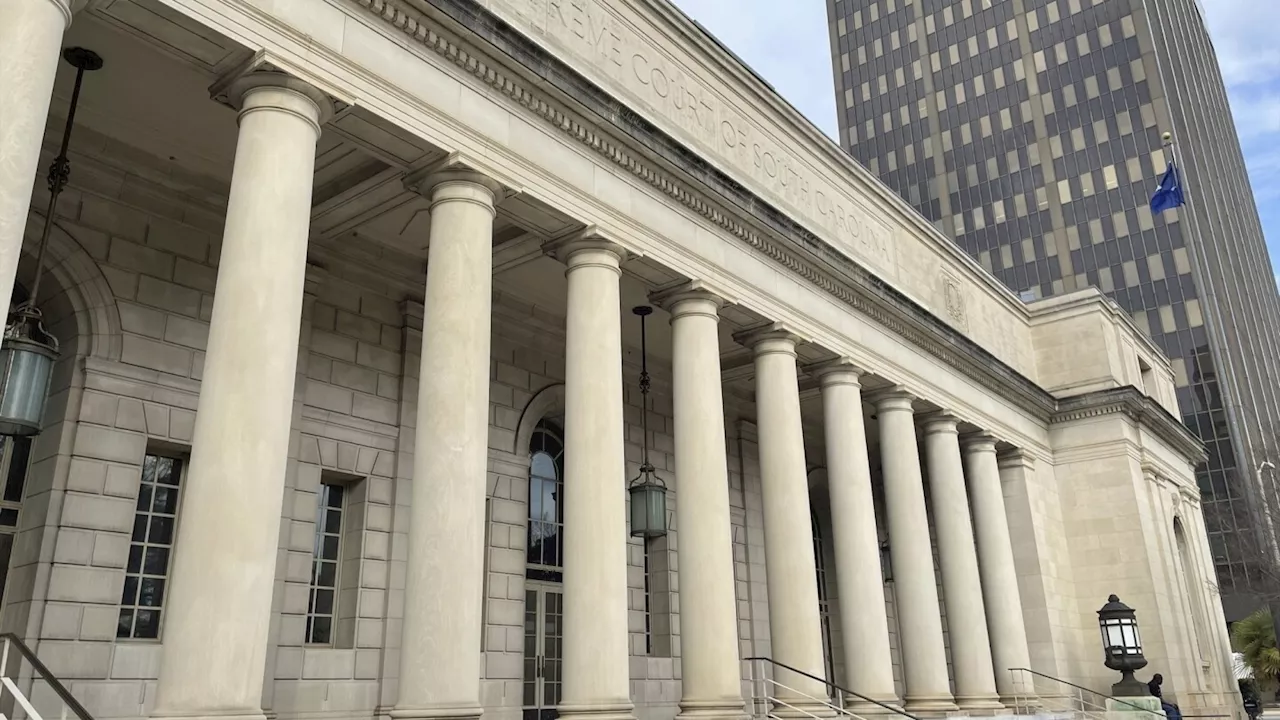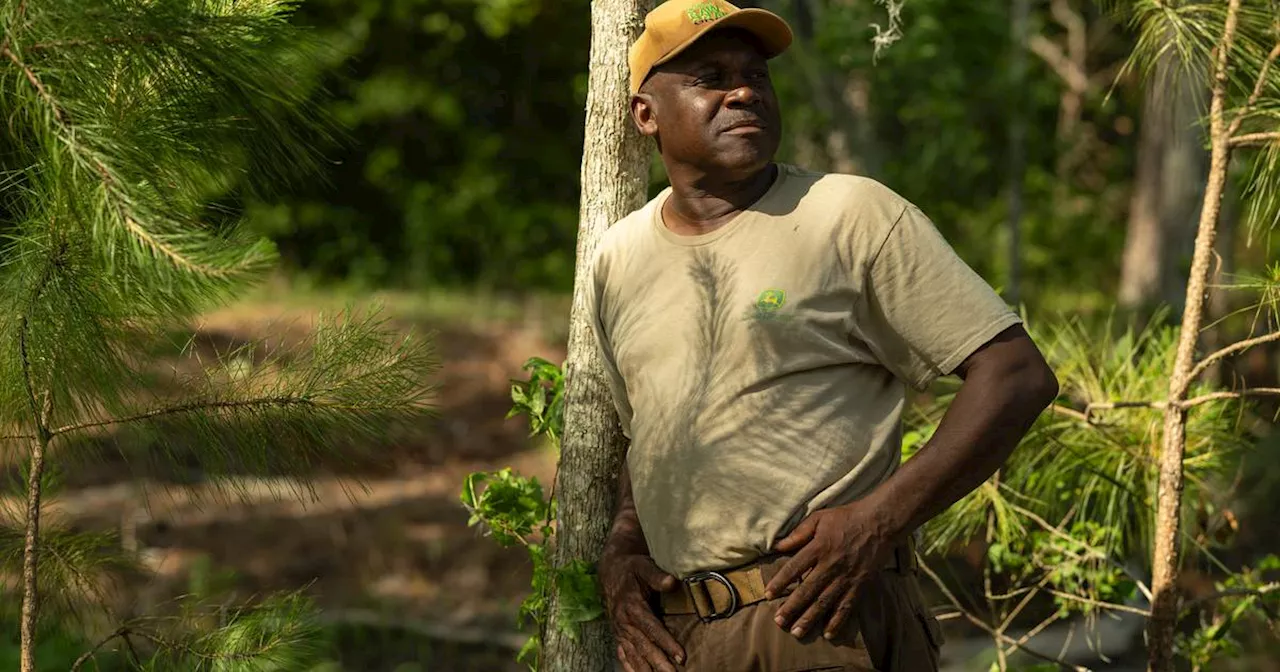Rice farmer Rollen Chalmers has been integral to the region’s heritage-grains revival, and now chefs and home cooks are becoming loyal customers.
By Caroline Hatchett, The Washington PostChalmers prepares to sow the seeds to begin growing rice. MUST CREDIT: Lynsey Weatherspoon for The Washington Post
More than a sower of seeds, Chalmers works as a fixer, research grower, hydrologist, woodsman, field and fence builder, and ancestral knowledge keeper. “There’s not one farm we have with rice on, and we have a lot of them, that Rollen hasn’t been to and advised on,” Roberts says. Chalmers says he believes members of his grandparents’ generation stopped farming rice when they could no longer source seeds. Frances Chalmers suspects that when folks got factory and pulp mill jobs, they no longer had time to farm on the side. They could also afford store-bought rice, a show of rising family fortunes. “To grow your own rice was considered low class, low rent. It was a pejorative,” Roberts says.
Socci explained that Maria was Chalmers’s great-grandmother. In 1871, she married William, who was raised in Bluffton, and the couple had four children: Errol, Sarah, Sabina and William, Chalmers’s grandfather. “It’s unbelievable,” says Chalmers, whose paternal grandfather died young of an injury suffered while clearing a just-purchased plot of farmland. In his family, “no one knew anything about them.
“I’ve seen people get chills hearing his story and have really emotional experiences meeting him,” Bailey says about Chalmers. She has also brought her team from the Grey to Hardeeville to connect with Chalmers and learn about Lowcountry rice culture. What has surprised Chalmers most is the popularity of rice grits, or middlins. “It’s the hot thing with all the chefs,” he says. When milling rice, any broken grains get separated and sifted out; in the days of slavery, these castoffs went to animals and enslaved workers. Even with modern milling technology, 10 to 15 percent of Chalmers’s harvest cracks into middlins. However, he sells these “seconds” as rice grits for a higher price than whole grains.
Later, a budding crawfish farmer stopped by the store to see when Chalmers might want to grow rice in symbiosis with his crustaceans. Chalmers talked about upcoming research with Clemson University on salt-tolerant rice, the benefits of which could help farmers as far afield as Bangladesh. “I’ll tell you, I get into a little bit of everything,” Chalmers says. “But this rice growing, I enjoy it. I enjoy watching it grow and producing seeds for the next year.
United States Latest News, United States Headlines
Similar News:You can also read news stories similar to this one that we have collected from other news sources.
 A Black farmer in South Carolina cultivates culture, history — and riceRice farmer Rollen Chalmers has been integral to the region’s heritage-grains revival, and now chefs and home cooks are becoming loyal customers.
A Black farmer in South Carolina cultivates culture, history — and riceRice farmer Rollen Chalmers has been integral to the region’s heritage-grains revival, and now chefs and home cooks are becoming loyal customers.
Read more »
South Carolina Baseball Projected to Be In North Carolina RegionalWith the NCAA Regionals set to begin this week, we take a look at the projected landing spot for the South Carolina Gamecocks.
Read more »
South Carolina Baseball Projected to Be In North Carolina RegionalWith the NCAA Regionals set to begin this week, we take a look at the projected landing spot for the South Carolina Gamecocks.
Read more »
 South Carolina's Supreme Court will soon have no Black justicesAll the justices on South Carolina’s Supreme Court are going to be white for the first time in nearly two decades. Circuit Judge Jocelyn Newman was the lone Black candidate for the state Supreme Court seat coming open. The only African American on the high court is Chief Justice Don Beatty.
South Carolina's Supreme Court will soon have no Black justicesAll the justices on South Carolina’s Supreme Court are going to be white for the first time in nearly two decades. Circuit Judge Jocelyn Newman was the lone Black candidate for the state Supreme Court seat coming open. The only African American on the high court is Chief Justice Don Beatty.
Read more »
 South Carolina's Supreme Court will soon have no Black justicesAll the justices on South Carolina’s Supreme Court are going to be white for the first time in nearly two decades
South Carolina's Supreme Court will soon have no Black justicesAll the justices on South Carolina’s Supreme Court are going to be white for the first time in nearly two decades
Read more »
 Supreme Court finds no bias against Black voters in a South Carolina congressional districtThe Supreme Court has preserved a Republican-held South Carolina congressional district, rejecting a lower-court ruling that the district discriminated against Black voters.
Supreme Court finds no bias against Black voters in a South Carolina congressional districtThe Supreme Court has preserved a Republican-held South Carolina congressional district, rejecting a lower-court ruling that the district discriminated against Black voters.
Read more »
